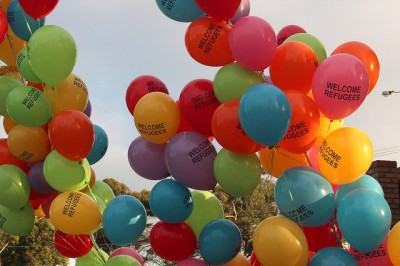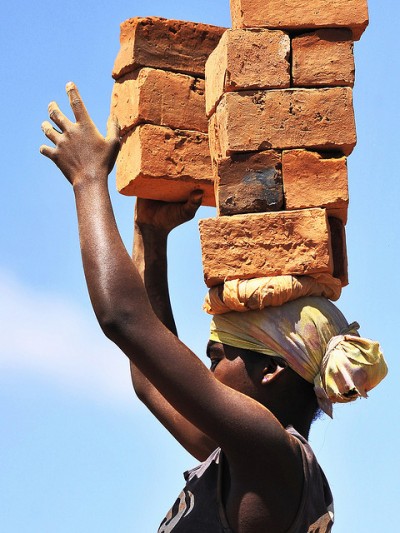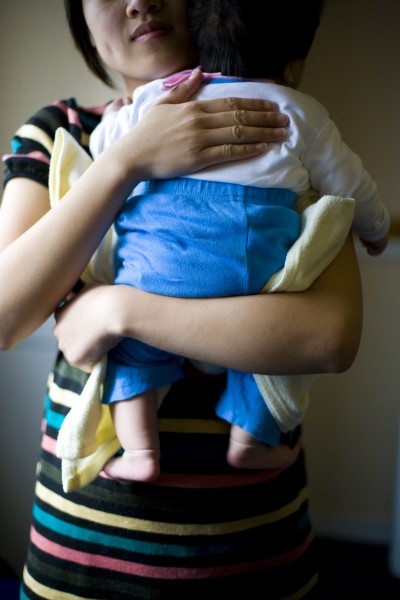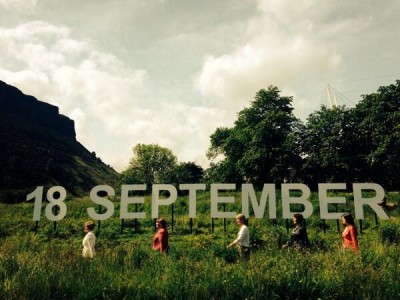Engender blog
Women and the referendum (Indyref Thursday #6)
 In the run-up to our event on 'gender equality, the referendum and beyond', we'll be publishing a weekly blog to correspond with our 'Scotland's futures' briefing papers series. This week, Engender policy manager Jill Wood writes on the implications of the referendum for the women's movement .
In the run-up to our event on 'gender equality, the referendum and beyond', we'll be publishing a weekly blog to correspond with our 'Scotland's futures' briefing papers series. This week, Engender policy manager Jill Wood writes on the implications of the referendum for the women's movement .
The referendum context has generated much thinking about alternative visions of society across civic Scotland, and the difference that constitutional change might make for marginalised groups. Engender has not taken a position on a preferred outcome, but we have been analysing the implications from women’s rights and gender equality angles, providing platforms for debate and consulting with our membership and wider stakeholders for over two years.
Refugee Women's Strategy Group, Umoja Inc, and Engender launch reports on gender and asylum

In June 2014 Engender, Umoja Inc and the Refugee Women’s Strategy Group (RWSG) held an event as part of Refugee Week in Glasgow. The aim of this event was to come together to celebrate refugee women in Scotland and launch two pieces of work that seek to capture the experience of asylum seeking women: the RWSG’s Speak for Yourself report and Engender’s briefing paper on gender and the asylum system.
Speak for Yourself is the product of 100 interviews with asylum seeking women. It identifies some of the critical issues that asylum seeking women face, including access to work, education, housing, and health. Women also spoke about the challenge of the asylum process itself.
Indyref, women and the labour market (Indyref Thursday #1)

In the run-up to our event on 'gender equality, the referendum and beyond', we'll be publishing a weekly blog to correspond with our 'Scotland's futures' briefing papers series. First up is women and the labour market by Engender's Director, Emma Ritch.
Women in Scotland experience a vastly different workplace from men. Women work in different jobs, earn lower wages, experience the bulk of sexual harassment, have a precarious place in male-dominated organisations and sectors, and are vanishingly unlikely to end their careers around a boardroom table.
The scale of the differences is so enormous as to be almost invisible: it fills the vision of women as they grapple with the everyday ordinariness of balancing work, friends, and family life. The inequalities have developed a different veneer since the 1950s, but many of the changes have been superficial. Some of the key indicators of inequality, like who works part-time, have barely flickered in generations. In some places in Scotland, we’re even recreating the typing pool, as public bodies make ‘efficiency savings’.
Getting to grips with women and work can be a technical minefield, with overlapping policies, sets of statistics, and legal structures in play. So what should we all be thinking about when we cast our ballots on 18 September?
Guest post: ‘Women and Children First?’ The reality of maternity care for Scotland’s refused asylum seekers
 By Vicky Glen
By Vicky Glen
For mothers in Scotland (and the world over), experiences of maternity care are key in influencing the overall experience of motherhood. Health policy has been a devolved matter since the creation of the NHS. As such, asylum seekers (including refused asylum seekers) are entitled to free primary and secondary health care in Scotland (in contrast with England and Northern Ireland, where refused asylum seekers may be required to pay for secondary health care, which can include maternity care). But do asylum seeking women experience a level of maternity care equal to that of other women living in Scotland?
It was this question that Sylvie Da Lomba of University of Strathclyde Law School and Nina Murray, Women’s Policy Development Officer at Scottish Refugee Council, sought to answer. While work had previously been conducted into the quality of maternity care for asylum seeking women in England and Wales, there was no primary focus upon the experiences of refused asylum seeking women. Previous work had already identified the severity of the health needs of asylum seeking women, with these needs exacerbated during pregnancy.
In light of the then proposed changes to access to healthcare under the Immigration Act 2014 (now a sad reality), and the challenging of asylum support levels by various third sector organisations (now perfectly exemplified in the case of Refugee Action v Secretary of State for the Home Department), the project aimed to assess: whether female asylum seekers were accessing free maternity care in Glasgow as ordinarily resident UK citizens (in line with Scottish government guidance); the extent and nature of any barriers to this access; and whether the access and quality of this care was in line with statutory, governmental and international human rights obligations.
First all-female cabinet event a mixed bag on women's equality
 Events like the first all-female cabinet meeting with the women's sector are generally more about symbolism than they are about substance. Sceptics have even made the point that the women of the Scottish cabinet only control 12% of the Scottish budget.
Events like the first all-female cabinet meeting with the women's sector are generally more about symbolism than they are about substance. Sceptics have even made the point that the women of the Scottish cabinet only control 12% of the Scottish budget.
Nonetheless, the visual of five female ministers (the four cabinet secretaries and Aileen Campbell, Minister for Children and Young People) setting out their vision for Scotland was an arresting one.
Nicola Sturgeon's opening speech wasn't particularly gender-focused, but it did tick off a number of gender-inflected issues, in the form of the minimum wage, anti-discrimination law, and women on boards.
Downloads
 Engender Briefing: Pension Credit Entitlement Changes
From 15 May 2019, new changes will be introduced which will require couples where one partner has reached state pension age and one has not (‘mixed age couples’) to claim universal credit (UC) instead of Pension Credit.
Engender Briefing: Pension Credit Entitlement Changes
From 15 May 2019, new changes will be introduced which will require couples where one partner has reached state pension age and one has not (‘mixed age couples’) to claim universal credit (UC) instead of Pension Credit.
 Engender Parliamentary Briefing: Condemnation of Misogyny, Racism, Harassment and Sexism
Engender welcomes this Scottish Parliament Debate on Condemnation of Misogyny, Racism, Harassment and Sexism and the opportunity to raise awareness of the ways in which women in Scotland’s inequality contributes to gender-based violence.
Engender Parliamentary Briefing: Condemnation of Misogyny, Racism, Harassment and Sexism
Engender welcomes this Scottish Parliament Debate on Condemnation of Misogyny, Racism, Harassment and Sexism and the opportunity to raise awareness of the ways in which women in Scotland’s inequality contributes to gender-based violence.
 Gender Matters in Social Security: Individual Payments of Universal Credit
A paper calling on the Scottish Government to automatically split payments of Universal Credit between couples, once this power is devolved to the Scottish Parliament.
Gender Matters in Social Security: Individual Payments of Universal Credit
A paper calling on the Scottish Government to automatically split payments of Universal Credit between couples, once this power is devolved to the Scottish Parliament.
 Gender Matters Manifesto: Twenty for 2016
This manifesto sets out measures that, with political will, can be taken over the next parliamentary term in pursuit of these goals.
Gender Matters Manifesto: Twenty for 2016
This manifesto sets out measures that, with political will, can be taken over the next parliamentary term in pursuit of these goals.
 Scottish NGO Briefing for UN Special Rapporteur on Violence Against Women
Joint briefing paper for the UN Rapporteur on Violence Against Women.
Scottish NGO Briefing for UN Special Rapporteur on Violence Against Women
Joint briefing paper for the UN Rapporteur on Violence Against Women.

Newsletter
Sign up to receive our newsletter here:
Sign up to our mailing list
Receive key feminist updates direct to your inbox: